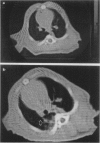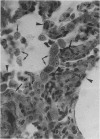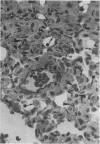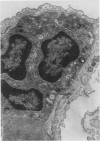Abstract
To clarify the evolution of acute lung injury induced by endotoxin, the progression of lung damage in 26 rats submitted to intratracheal instillation of 5 mg/kg body weight endotoxin was examined by blood gas analysis, computerized tomography, light and electron microscopy. Hypoxaemia, hypercapnia, acidosis and inhomogeneous bilateral infiltrates developed gradually within 48 hours. Monocytes appeared within blood capillaries and the instertitium by 12 hours after treatment, then migrated into alveoli and underwent progressive differentiation into macrophages by 24 hours after treatment. Granulocytes were found within blood capillaries at an early stage, but outside capillaries only at 48 hours. Hyperplasia of type II pneumocytes and hypertrophy of interstitial fibroblasts also occurred at 48 hours. These data suggest that the pathogenesis of endotoxin induced pulmonary injury proceeds through an early phase of granulocyte migration inside capillaries and monocyte extravasation, an intermediate phase of monocyte differentiation into macrophages inside alveoli and a late phase of diffuse infiltration of alveoli by newly differentiated macrophages and late-extravasated neutrophils.
Full text
PDF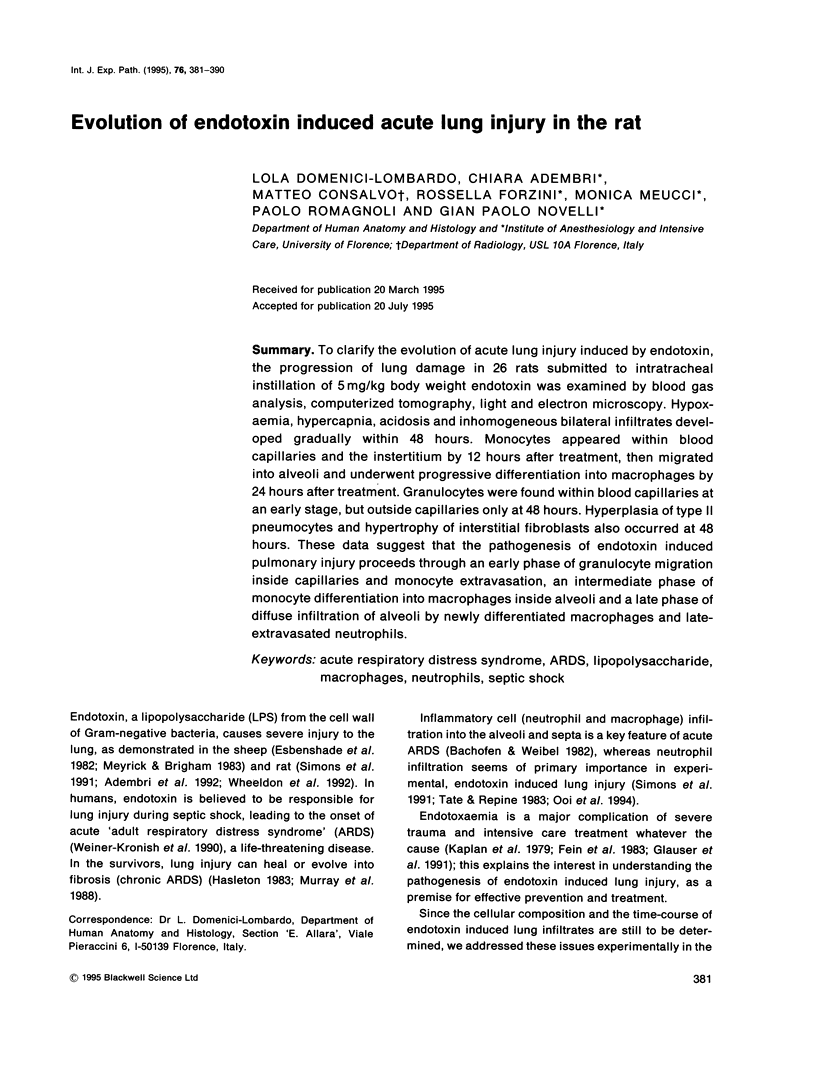
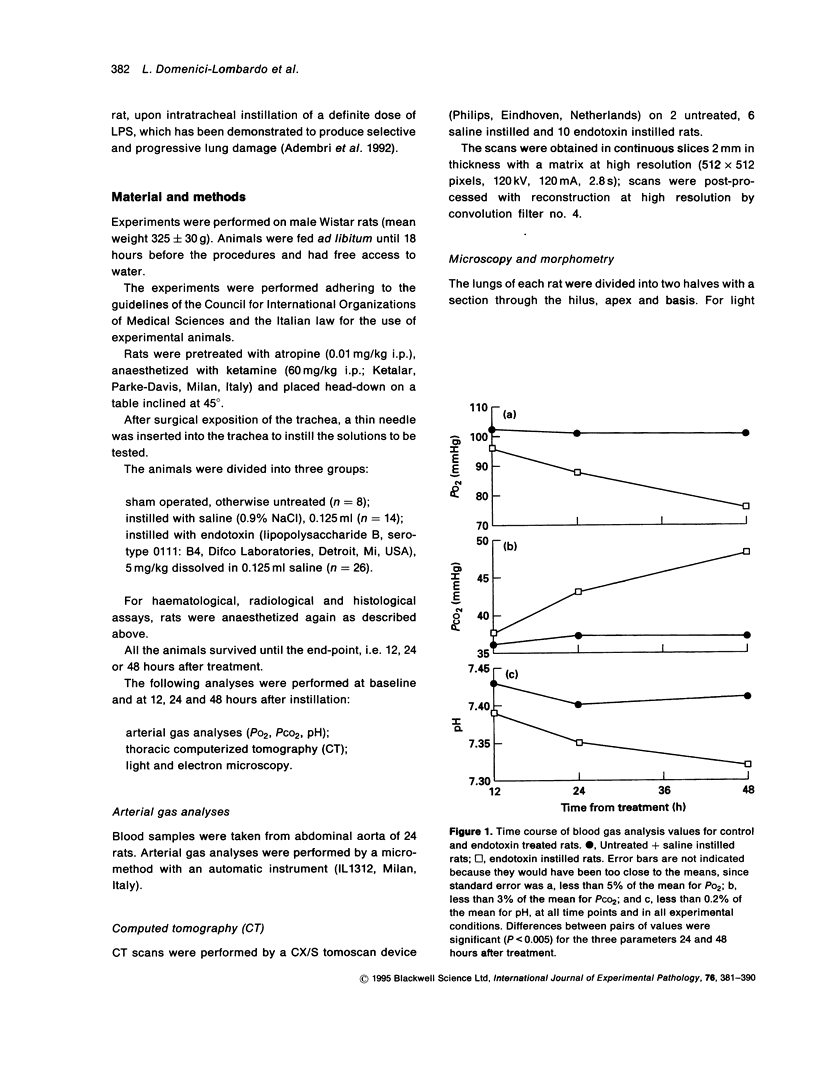
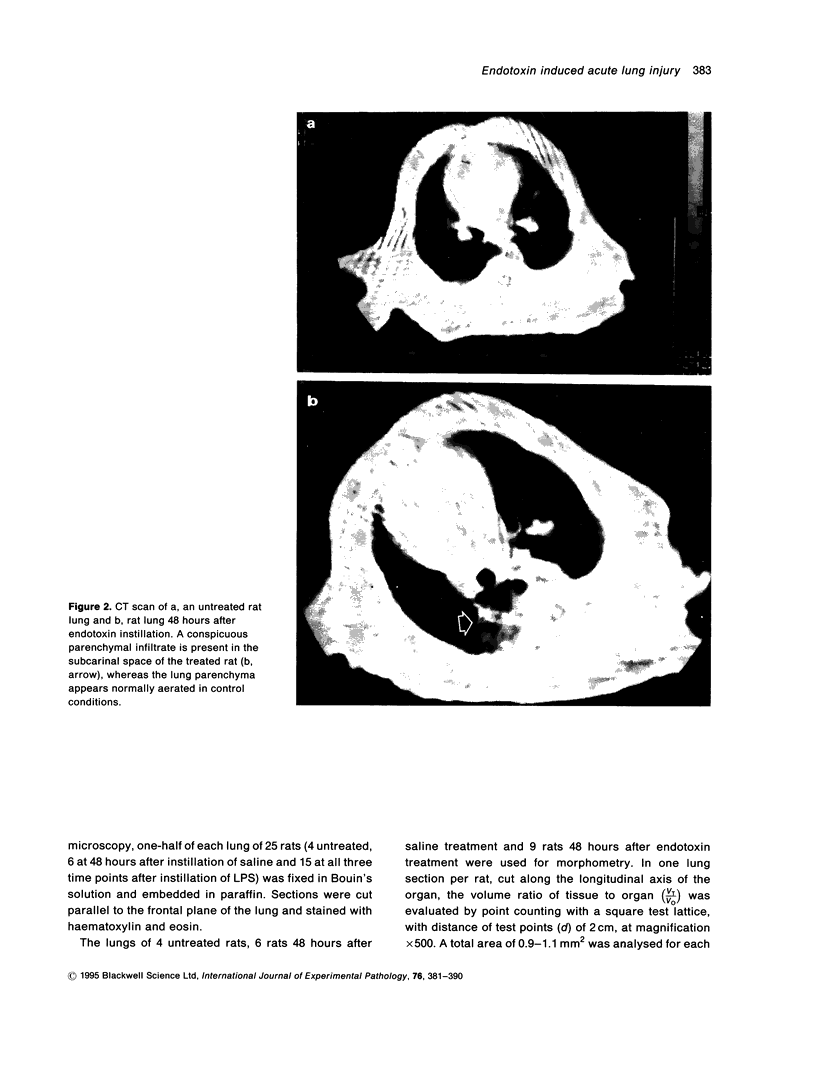
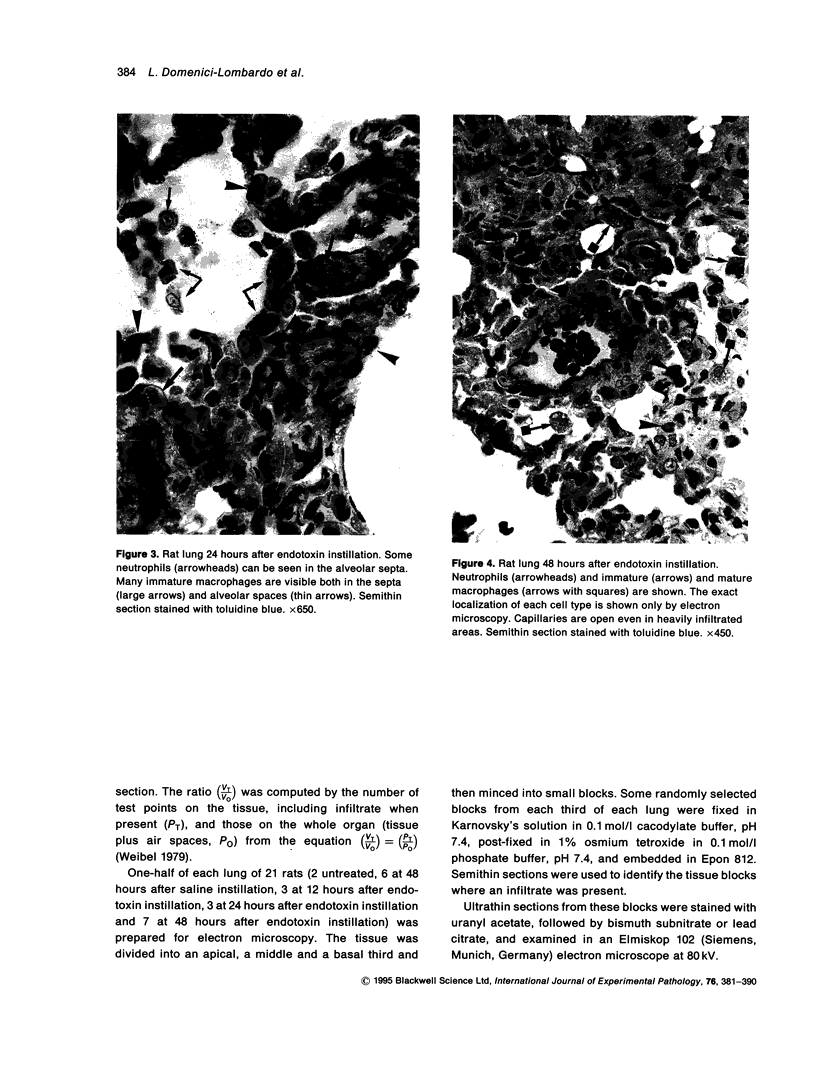
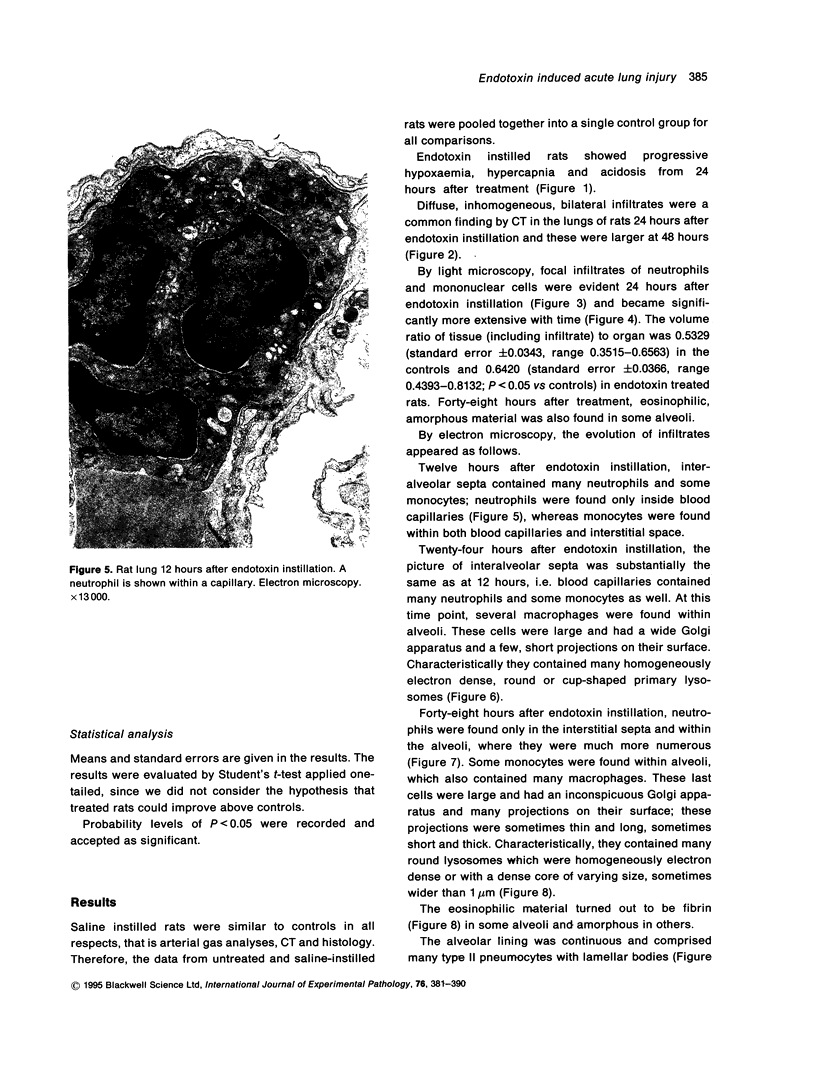
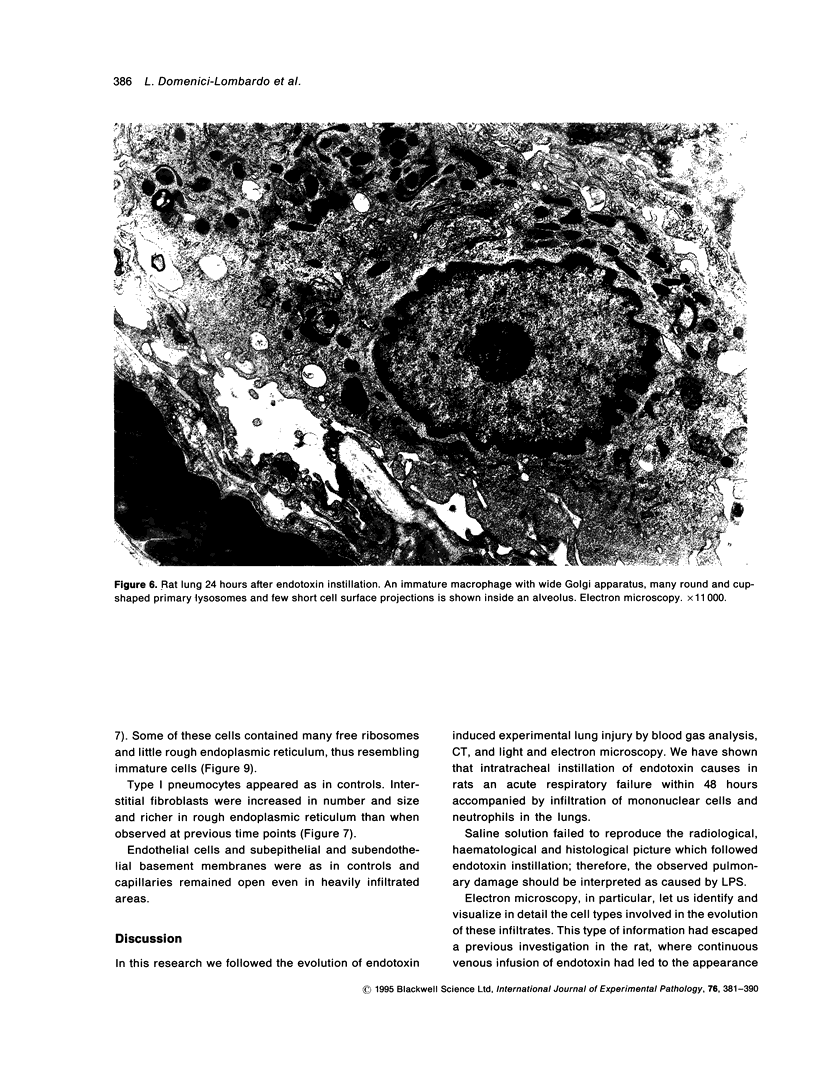
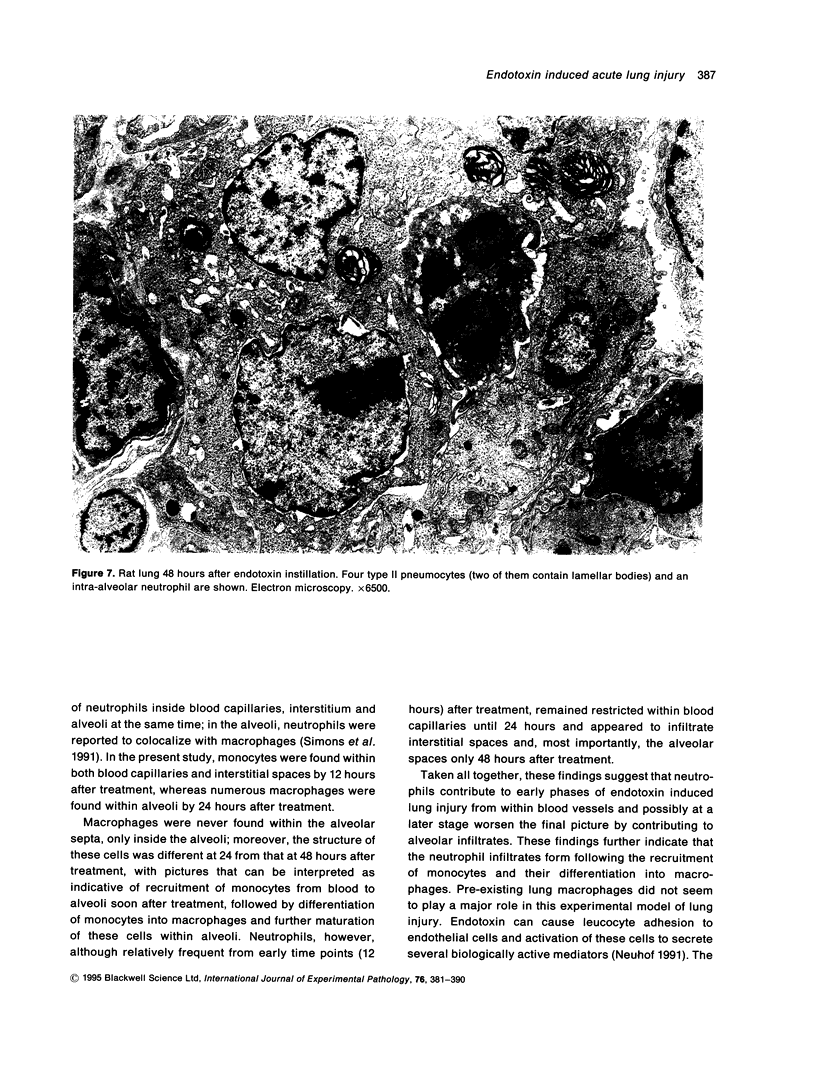
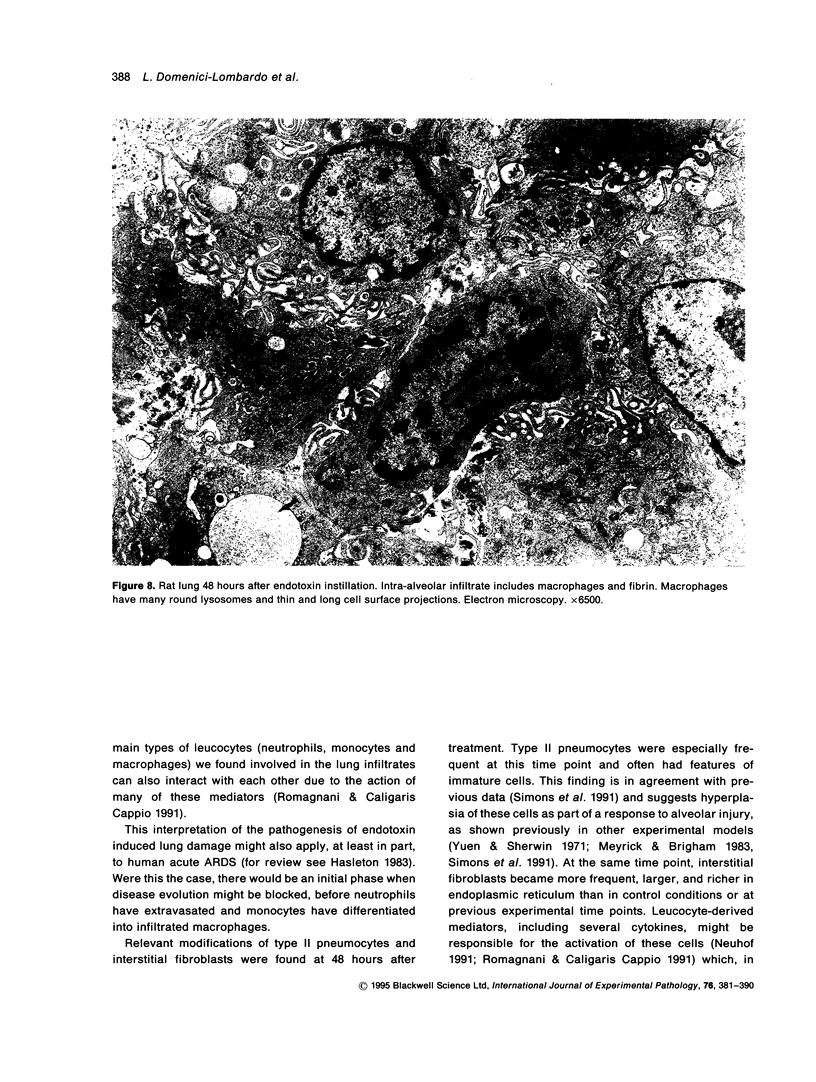
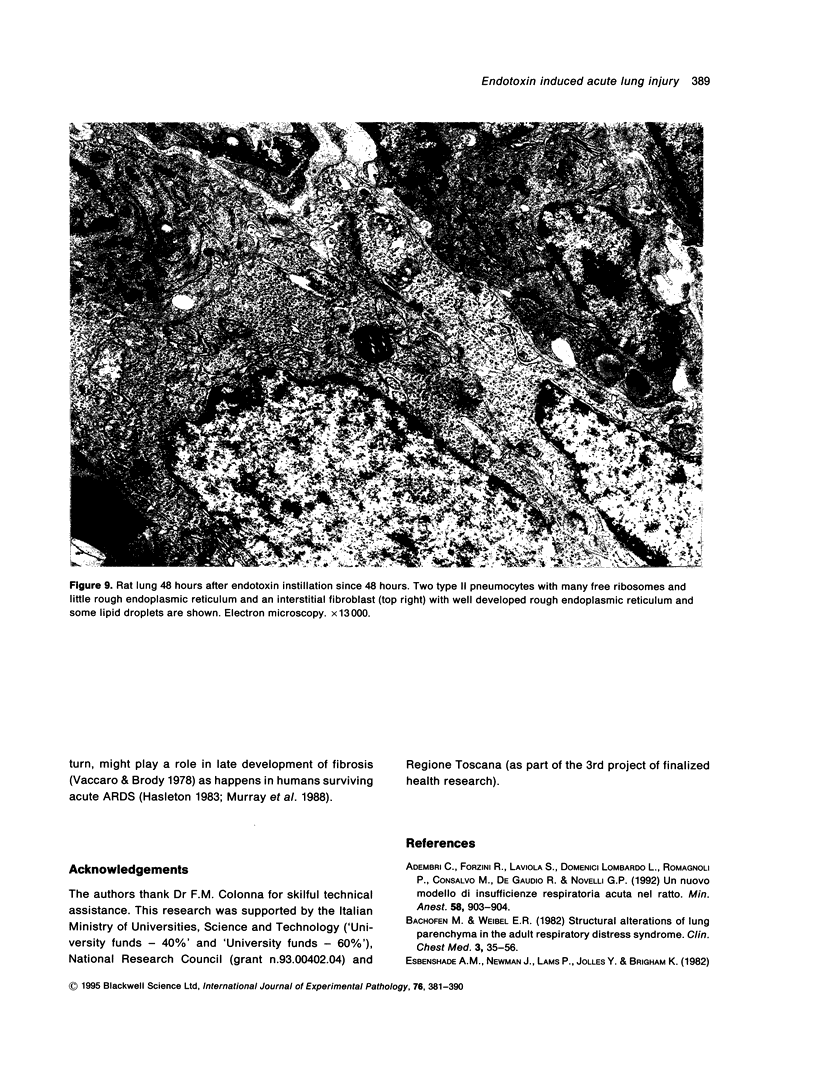
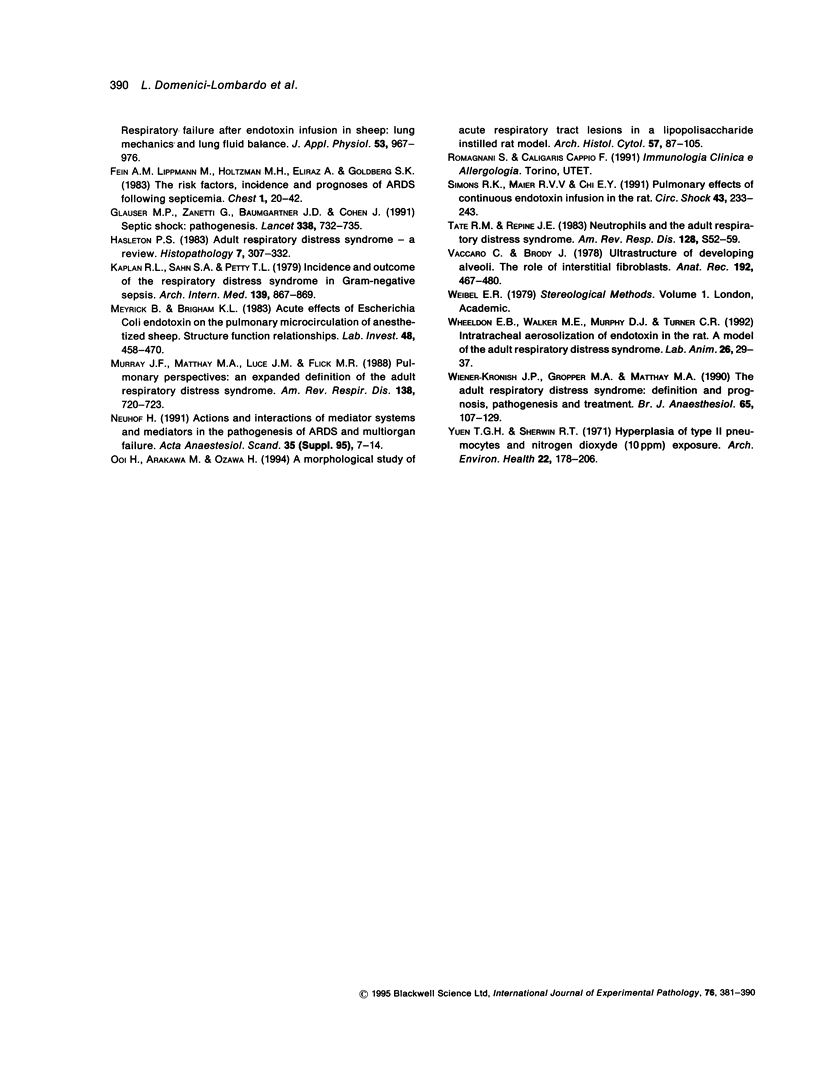
Images in this article
Selected References
These references are in PubMed. This may not be the complete list of references from this article.
- Bachofen M., Weibel E. R. Structural alterations of lung parenchyma in the adult respiratory distress syndrome. Clin Chest Med. 1982 Jan;3(1):35–56. [PubMed] [Google Scholar]
- Glauser M. P., Zanetti G., Baumgartner J. D., Cohen J. Septic shock: pathogenesis. Lancet. 1991 Sep 21;338(8769):732–736. doi: 10.1016/0140-6736(91)91452-z. [DOI] [PubMed] [Google Scholar]
- Hasleton P. S. Adult respiratory distress syndrome--a review. Histopathology. 1983 May;7(3):307–332. doi: 10.1111/j.1365-2559.1983.tb02247.x. [DOI] [PubMed] [Google Scholar]
- Kaplan R. L., Sahn S. A., Petty T. L. Incidence and outcome of the respiratory distress syndrome in gram-negative sepsis. Arch Intern Med. 1979 Aug;139(8):867–869. [PubMed] [Google Scholar]
- Meyrick B., Brigham K. L. Acute effects of Escherichia coli endotoxin on the pulmonary microcirculation of anesthetized sheep structure:function relationships. Lab Invest. 1983 Apr;48(4):458–470. [PubMed] [Google Scholar]
- Murray J. F., Matthay M. A., Luce J. M., Flick M. R. An expanded definition of the adult respiratory distress syndrome. Am Rev Respir Dis. 1988 Sep;138(3):720–723. doi: 10.1164/ajrccm/138.3.720. [DOI] [PubMed] [Google Scholar]
- Neuhof H. Actions and interactions of mediator systems and mediators in the pathogenesis of ARDS and multiorgan failure. Acta Anaesthesiol Scand Suppl. 1991;95:7–14. doi: 10.1111/j.1399-6576.1991.tb03394.x. [DOI] [PubMed] [Google Scholar]
- Ooi H., Arakawa M., Ozawa H. A morphological study of acute respiratory tract lesions in a lipopolysaccharide instilled rat model. Arch Histol Cytol. 1994 Mar;57(1):87–105. doi: 10.1679/aohc.57.87. [DOI] [PubMed] [Google Scholar]
- Simons R. K., Maier R. V., Chi E. Y. Pulmonary effects of continuous endotoxin infusion in the rat. Circ Shock. 1991 Apr;33(4):233–243. [PubMed] [Google Scholar]
- Tate R. M., Repine J. E. Neutrophils and the adult respiratory distress syndrome. Am Rev Respir Dis. 1983 Sep;128(3):552–559. doi: 10.1164/arrd.1983.128.3.552. [DOI] [PubMed] [Google Scholar]
- Vaccaro C., Brody J. S. Ultrastructure of developing alveoli. I. The role of the interstitial fibroblast. Anat Rec. 1978 Dec;192(4):467–479. doi: 10.1002/ar.1091920402. [DOI] [PubMed] [Google Scholar]
- Wheeldon E. B., Walker M. E., Murphy D. J., Turner C. R. Intratracheal aerosolization of endotoxin in the rat: a model of the adult respiratory distress syndrome (ARDS). Lab Anim. 1992 Jan;26(1):29–37. doi: 10.1258/002367792780809020. [DOI] [PubMed] [Google Scholar]
- Wiener-Kronish J. P., Gropper M. A., Matthay M. A. The adult respiratory distress syndrome: definition and prognosis, pathogenesis and treatment. Br J Anaesth. 1990 Jul;65(1):107–129. doi: 10.1093/bja/65.1.107. [DOI] [PubMed] [Google Scholar]
- Yuen T. G., Sherwin R. P. Hyperplasia of type 2 pneumocytes and nitrogen dioxide (10 ppm) exposure. A quantitation based on electron photomicrographs. Arch Environ Health. 1971 Jan;22(1):178–188. doi: 10.1080/00039896.1971.10665830. [DOI] [PubMed] [Google Scholar]




